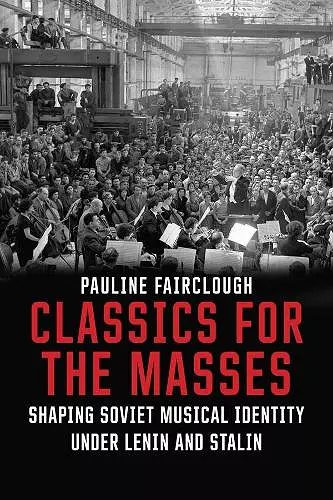Classics for the Masses
Shaping Soviet Musical Identity under Lenin and Stalin
Format:Hardback
Publisher:Yale University Press
Published:16th Apr '16
Currently unavailable, and unfortunately no date known when it will be back

Musicologist Pauline Fairclough explores the evolving role of music in shaping the cultural identity of the Soviet Union in a revelatory work that counters certain hitherto accepted views of an unbending, unchanging state policy of repression, censorship, and dissonance that existed in all areas of Soviet artistic endeavor. Newly opened archives from the Leninist and Stalinist eras have shed new light on Soviet concert life, demonstrating how the music of the past was used to help mold and deliver cultural policy, how “undesirable” repertoire was weeded out during the 1920s, and how Russian and non-Russian composers such as Mozart, Tchaikovsky, Wagner, Bach, and Rachmaninov were “canonized” during different, distinct periods in Stalinist culture. Fairclough’s fascinating study of the ever-shifting Soviet musical-political landscape identifies 1937 as the start of a cultural Cold War, rather than occurring post-World War Two, as is often maintained, while documenting the efforts of musicians and bureaucrats during this period to keep musical channels open between Russia and the West.
“These books give fuller, finer-grained and better-shaded accounts of Soviet policy ups and downs and their impact on musicians than any previous study.”—Richard Taruskin, Times Literary Supplement
Won the 2017 Choice Award for Outstanding Academic Title
Has just been awarded the Women's Forum Book Prize of the British Association of Slavonic and East European Studies (BASEES).
ISBN: 9780300217193
Dimensions: unknown
Weight: 635g
296 pages